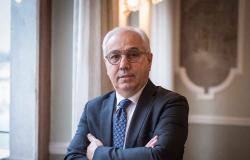
Note – This press release was published in full as an external contribution. This content is therefore not an article produced by the ForlìToday editorial team
On the afternoon of Saturday 1 June Forlì experienced a new weekday page, small but significant, in its community history. In Piazza Ordelaffi, in front of the Prefecture. Responding to the invitation of Forlì Città Aperta and the University Students Union, around a hundred people, mostly African immigrants and young male and female migrant students from other cities in the country, gathered in a circular shape to demand the right to housing ( often denied due to “less than noble” prejudices) and the right to pay rent that is not too expensive (unsustainable even for many young university students). Two female students and one male student denounced the fact that the Forlì branch of the university greatly emphasizes the greater growth in enrollments compared to the other Romagna branches, but the attention to the social problems of students is very limited.
“Many homeless people and many houses without people.” A heartfelt statement repeated several times during the speeches: six by immigrants from Senegal, Guinea Bissau, Mali, Burkina Fasu) and three by university students. On the occasion of Republic Day, more than ever, we should remember the first paragraph of 3 of the Constitution: “All citizens have equal social dignity and are equal before the law without distinction of sex, race, language, religion, of personal and social condition”.
The African citizens who took turns at the microphone, almost all regular workers who feel like Forlì and have now made the life choice of remaining in Italy, believe it is profoundly unfair to have to settle for very precarious living situations (sometimes even having to sleep by car) and the need for particularly long waiting times for the recognition of residence permits, with an incomprehensible passing of the buck between Forlì and Rome. “Our work contributes to the well-being of the entire community, which would also need several thousand new immigrants in Forlì and our contributions are increasingly indispensable for the payment of pensions for the elderly, but we are considered and treated as second-class citizens” . And one of them says: “The cemetery has no color.”
In a very civil and peaceful demonstration, the anger at the discrimination suffered also translates into some very harsh outbursts. “Forlì is a racist city”. Certainly an excessive statement, beyond the racist behavior of many fellow citizens, even with institutional responsibilities. Massimo Tesei recalled that in the 1950s and 1960s, signs such as: “Do not rent to southerners” were posted in many buildings in Turin and Milan. Even though millions of workers from the South have made an essential contribution to the economic miracle. As laborers they were accepted or perhaps rather suffered, but without recognition of the needs of the people and their families. I remember a famous phrase from an Italian emigrant to Switzerland: “You were looking for workers, and men arrived.” And women, and families. Unfortunately, the right-centre coalition that governs Italy and aspires to administer Forlì a second time conceives immigration not as a resource, but as a burden to be removed in a preconceived way, without taking into account the strong demographic decline underway nor of the appeal of the economic forces, in great difficulty due to the shortage of manpower.
The obtuseness of certain prejudices also obscures the perception of reality and one’s public duties, which should be at the service of the common good. In Forlì the Zattini council even feared – obscuring it – the voice of the elective council of new immigrant citizens, which in the second half of the nineties was among the first to be born in Italy, a pride of the centre-left. Let the current mayor answer before June 7: if his fake coalition won, would the Consulta remain in the archives or would it be revived?
Pierantonio Zavatti





